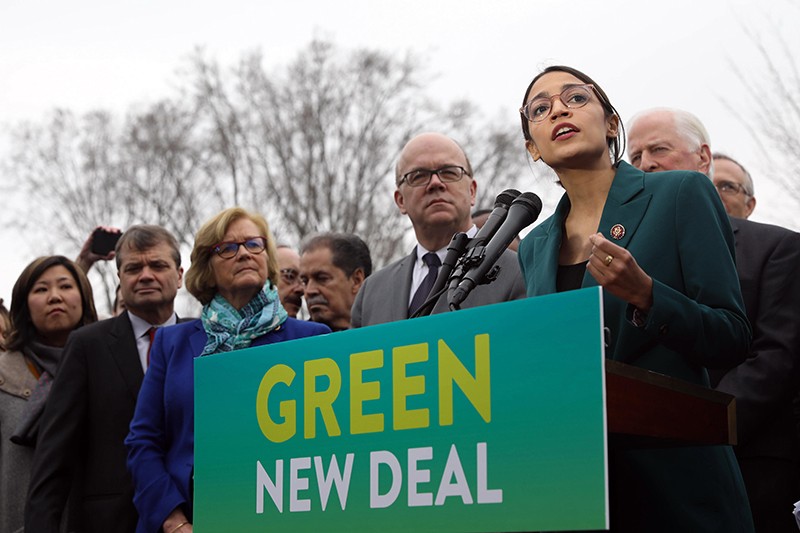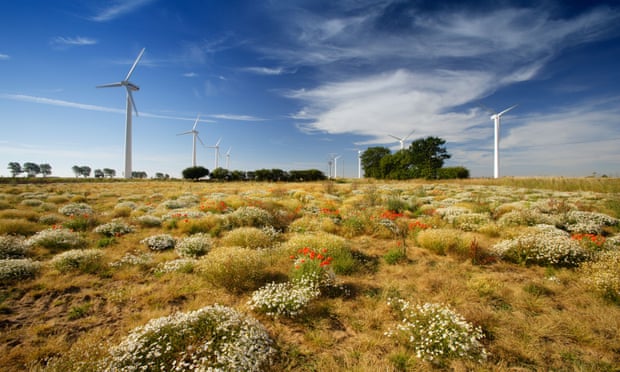Monday April 13th… Dear Diary. The main purpose of this ongoing blog will be to track United States extreme or record temperatures related to climate change. Any reports I see of ETs will be listed below the main topic of the day. I’ll refer to extreme or record temperatures as ETs (not extraterrestrials).😉
Main Topic: A Green Recovery After The COVID-19 Pandemic via Michael Mann, Naomi Klein and The Guardian
Dear Diary. First, today let’s be optimistic and state that we will get through this. The COVID-19 pandemic will be contained or at least ease by this fall with a vaccine in production by 2021. Second, life will not or even should not be the same as before the pandemic hit. During 2019, well my readers and I even heard of the coronavirus, we knew that our way of life had to change because of the climate crisis. The planet needs to get healthier via green renewables. We also know that our food needs to get healthier such that viruses like COVID-19 don’t get transmitted to us via animals like bats. Likewise, if we keep the planet’s temperature down ancient viruses that can harm us may not be released from sources such as permafrost.
I’ve learned one big lesson over the last decade, and that is our economics have to change in order for a green future to become a reality. There is one big economic and political philosophy that we need to discard or at least reform, which Dr. Michael Mann and Naomi Klein delve into in the following Nature article, and that is neo-liberalism.
Neo-liberalism has been embraced by many, such as Trump, and has become more popular during the 2010s among those with more right wing political views. But, just like many things in life having both good and bad qualities, we should not discard the proverbial baby with the bathwater. I have some reservations of totally changing our capatalistic way of doing things via neo-liberalism as does Dr. Mann:
Radical reform and the Green New Deal
Michael E. Mann examines Naomi Klein’s collection on the proposed US policy aiming to curb climate change.
Michael E. Mann

On Fire: The Burning Case for a Green New Deal Naomi Klein Simon & Schuster (2019)
I don’t always recommend a book I disagree with. But when I do, it’s usually by Naomi Klein.
In truth, my views chime with much in the Canadian journalist’s collection of articles and essays, On Fire. But I have substantial points of disagreement.
Related:
Why Nature joined the Covering Climate Now initiative
Klein has been a leading voice at the intersection of social and environmental movements for two decades — ever since she inspired a generation to reflect on the blight of consumerism with No Logo (1999). And she does not disappoint here. She provides a lucid and compelling case for the Green New Deal (GND). This set of proposed federal policies, advocated by Democratic representative for New York Alexandria Ocasio-Cortez, aims to mobilize massive societal resources to prevent a dangerous rise in Earth’s temperature of more than 1.5 °C above pre-industrial levels. (Economic theorist Jeremy Rifkin’s The Green New Deal, out this month, makes a good read in tandem.)
To tackle the climate crisis, both urgency and agency must be communicated to the public. On Fire does both. Klein emphasizes how fossil-fuel interests have poisoned the political waters of climate action for decades, in the United States and elsewhere. Progress will probably demand laws that force special-interest money — including that from the fossil-fuel industry and undisclosed, untraceable ‘dark money’ — out of our politics. It will also probably involve promoting fossil-fuel divestment by public and private institutions; conducting campaigns to pressure media outlets to refuse fossil-fuel advertising money; and removing the social licence currently given to polluters, by publicly calling out their behaviour. These things, in turn, aim to create a risky financial atmosphere for fossil-fuel companies, encouraging them to leave their primary assets in the ground, and investors to put their money elsewhere.
Related:
Deep change is necessary. Klein emphasizes that it will center on expressions of collective action, such as the global youth climate movement, and the anti-oil-pipeline protests in North Dakota in 2016–17. But Klein goes further. Her thesis is that neoliberalism — the prevailing global policy model, predicated on privatization and free-market capitalism — must be overthrown through mass resistance. She holds that climate change can’t be separated from other pressing social problems, each a symptom of neoliberalism: income inequality, corporate surveillance, misogyny and white supremacy.
I share her concern over each of these societal afflictions, but I wonder at the assertion that it’s not possible to address climate change without solving all that plagues us. My worry is this. Saddling a climate movement with a laundry list of other worthy social programmes risks alienating needed supporters (say, independents and moderate conservatives) who are apprehensive about a broader agenda of progressive social change.
Related:
The pessimist in me also doubts that we’ll eliminate greed and intolerance within the next decade. As Klein rightly notes, this is precisely the timescale over which we must make substantial progress in decarbonizing our economy to avert catastrophic climate change. The optimist in me, meanwhile, recalls the response to past global environmental threats, such as depletion of the ozone layer that protects us from ultraviolet radiation. Action to reduce ozone-damaging chlorofluorocarbons under the 1987 Montreal Protocol averted environmental catastrophe. Alas, it did not obviously solve any social problems in the process.
So do we work within the system, or overthrow it? There is another way: to recognize this dilemma as false. We can, after all, work within the system (organizing, voting, demonstrating and using all the levers of democracy) while seeking to change it (for example by routing corporate money out of politics through regulations and governmental reform). I have not yet given up on this dual escape route from climate chaos.
I am also not completely convinced by the GND in its current form. I broadly support its goals, but I question its rejection of market mechanisms for pricing carbon. Klein critiques such measures as both inadequate for reducing carbon emissions and inconsistent with a just energy transition; her argument is that the wealthy, who expend the most carbon, will not be deterred by having to pay for it.
Related:
Climate economics: Corporate greening falls short
Such a rejection of one of the most potent tools for reducing carbon emissions is misguided, in my view. Achieving the needed emissions cuts depends on the price. As long as that matches an objectively determined social cost of carbon pollution, it should produce the needed result. And whether a carbon tax is progressive or regressive depends on precisely what is done with the revenue. A dividend, for example, could be paid preferentially to those most affected by climate change — particularly people with low incomes.
It’s advisable to decouple economic justice and environmental issues, given the turbulence in US politics under President Donald Trump. Otherwise, as one individual said to me, the Republican Party can easily cry ‘socialism’ to convince voters to oppose the kinds of policy we need to mitigate climate change.
Klein sometimes overreaches in building the case for climate concern. For example, she states that “oceans are warming 40 percent faster than the United Nations predicted just five years ago”. However, the article on which this claim is based isn’t original research, but a commentary (L. Cheng et al. Science 363, 128–129; 2019). It notes that when errors in historical data that had led to a mismatch with climate-model predictions are corrected, the model predictions and observations are in very good agreement.
Related:
And Klein ties the current refugee crisis around the world more closely to climate change than can be objectively justified, in my view. Although climate change is an increasingly important driver of migration, myriad other factors are at work. These include conflict, economic disparity and oppressive political regimes. When it comes to making the case for climate action, the truth is bad enough. We don’t need to stretch it.
These are minor quibbles, however. In On Fire, Klein once again provides a provocative and evocative manifesto deserving of our attention. I urge anyone who cares about the defining threat of our time to read it, and talk about it.
……………………………………….
Now here is a related Guardian article on how we need to have a Green recovery when, optimistically, this pandemic ends:
The Guardian view on the climate and coronavirus: global warnings
Steep falls in emissions have been the pandemic’s immediate effect. But what’s needed is a green recovery

So far, discussions of a coronavirus exit strategy have mainly focused on the steps that could bring an end to the lockdown. In the short term, both in the UK and elsewhere, there is nothing more desirable than letting people resume their lives, once it is safe to do so.
But the speed of the “return to normal” is not the only thing that matters. The manner in which the world’s leaders manage the colossal economic and political shocks caused by the virus is also of the utmost importance. And at the top of their list of priorities, alongside human welfare, must be the biosphere and its future.
It’s too soon to say with any confidence what impact coronavirus will have on the climate emergency. The brakes placed on economic activities of many kinds, worldwide, have led to carbon emission cuts that would previously have been unthinkable: 18% in China between February and March; between 40% and 60% over recent weeks in Europe. Habits and behaviours once regarded as sacrosanct have been turned on their heads: road traffic in the UK has fallen by 70%. Global air traffic has halved. Meanwhile, a much-needed spotlight has been thrown on humans’ troubling relationship to wildlife, with some experts arguing that the degradation of the natural world and exploitation of other species is among the pandemic’s causes.
In human terms, the economic contraction precipitated by the virus – and predicted by the World Bank to lead to a severe depression – is sure to be brutal. No one, and least of all an elected government, would have chosen to limit emissions in this way. But if further savage waves of destruction to people’s livelihoods are to be avoided, rather than simply stored up or ignored until they become unignorable, just as coronavirus was, every possible effort must now be made to ensure that the recovery, when it comes, is as green as possible; that any and every stimulus package is directed towards renewable energy and zero- or low-carbon infrastructure and transport.
The urgency and desperation surrounding all such efforts are likely to militate against progressive measures. Already, governments are coming under huge pressure to bail out oil and gas companies (in the US and Canada this has already begun). But while in the short term the low oil price, which is also the result of a price war being waged by Saudi Arabia and Russia, could have the damaging effect of making oil more competitive against renewables, plunging demand and turmoil in the industry provide an opportunity that must be seized by all who oppose the continued dominance of fossil fuels.

Coronavirus: the week explained – sign up for our email newsletter
There are other questions besides the future of oil that the crisis has opened up in unexpected ways. Huge political shifts are under way, with fiscally conservative governments such as Boris Johnson’s intervening in economies to an unprecedented extent. What was once impossible (socialist, reckless) now turns out not to be, at all. Could the renewed shock of human vulnerability in the face of Covid-19 make way for an increased willingness to face other perils, climate chaos among them?
Impossible to say at this stage, perhaps. Certainly not without a fight against all those who will promote a return to business (and emissions) as usual. But with the postponement of crucial UN biodiversity and climate conferences, it has never been more important to keep up the pressure. There is no exit strategy from our planet.
……………………………………
Well, amen to that last paragraph.
Now here are some of today’s articles and notes on the horrid COVID-19 pandemic:
Here is more climate and weather news from Monday:
(As usual, this will be a fluid post in which more information gets added during the day as it crosses my radar, crediting all who have put it on-line. Items will be archived on this site for posterity. In most instances click on the pictures of each tweet to see each article.)
First, here are some notes on Easter Sunday’s tornado outbreak:
Other News:
Here are some monstrous “ET’s” from the last 24 hours:
(If you like these posts and my work please contribute via the PayPal widget, which has recently been added to this site. Thanks in advance for any support.)
Guy Walton “The Climate Guy”